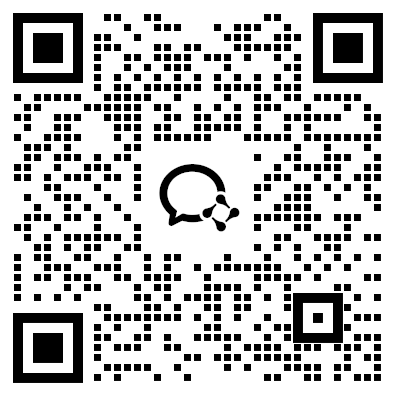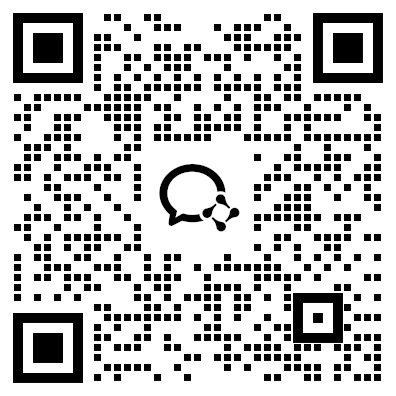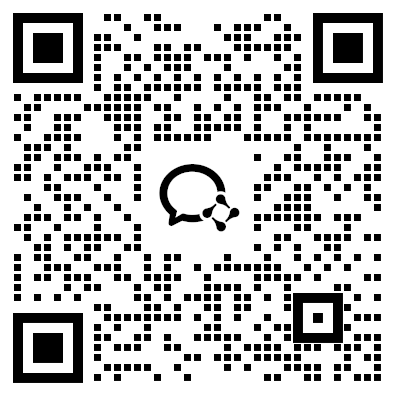选课中心NEW
7099人选课
SAT【0】元讲座
免费学
托福【0】元讲座
免费学
SAT模考网站HOT
39209人预约
托福备考练习HOT
39209人预约
SAT辅导课程NEW
免费报名
AP辅导课程NEW
立即报名
中学生托福课程NEW
立即报名
大学生托福课程NEW
立即报名
【定制】1v1
私人订制
【资料】考前冲刺
精

扫码添加助教
免费领取
备考资料大礼包

扫码关注公众号
为了帮助大家高效备考SAT,新东方在线SAT频道为大家带来SAT写作优秀例子:法拉第,希望对大家SAT备考有所帮助。更多精彩尽请关注新东方在线SAT频道!
The English chemist and physicist Michael Faraday, b. Sept. 22, 1791, d.Aug. 25, 1867, is known for his pioneering experiments in electricity andmagnetism. Many consider him the greatest experimentalist who ever lived.
Several concepts that he derived directly from experiments, such as lines of magnetic force, have become common ideas in modern physics.
Faraday was born at Newington, Surrey, near London. He received little more than a primary education, and at the age of 14 he was apprenticed to a bookbinder. There he became interested in the physical and chemical works of the time. After hearing a lecture by the famous chemist Humphry Davy, he sent Davy the notes he had made of his lectures. As a result Faraday was appointed, at the age of 21, assistant to Davy in the laboratory of the Royal Institution in London.
During the initial years of his scientific work, Faraday occupied himself mainly with chemical problems. He discovered two new chlorides of carbon and succeeded in liquefying chlorine and other gases. He isolated benzene in 1825, the year in which he was appointed director of the laboratory.
Davy, who had the greatest influence on Faraday's thinking, had shown in 1807 that the metals sodium and potassium can be precipitated from their compounds by an electric current, a process known as electrolysis.
Faraday's vigorous pursuit of these experiments led in 1834 to what became known as Faraday's laws of electrolysis.
Faraday's research into electricity and electrolysis was guided by the belief that electricity is only one of the many manifestations of the unified forces of nature, which included heat, light, magnetism, and chemical affinity. Although this idea was erroneous, it led him into the field of electromagnetism, which was still in its infancy.
In 1785, Charles Coulomb had been the first to demonstrate the manner in which electric charges repel one another, and it was not until 1820 that Hans Christian Oersted and Andre Marie Ampere discovered that an electric current produces a magnetic field. Faraday's ideas about conservation of energy led him to believe that since an electric current could cause a magnetic field, a magnetic field should be able to produce an electric current. He demonstrated this principle of induction in 1831. Faraday expressed the electric current induced in the wire in terms of the number of lines of force that are cut by the wire.
The principle of induction was a landmark in applied science, for it made possible the dynamo, or generator, which produces electricity by mechanical means.
Faraday's introduction of the concept of lines of force was rejected by most of the mathematical physicists of Europe, since they assumed that electric charges attract and repel one another, by action at a distance, making such lines unnecessary. Faraday had demonstrated the phenomenon of electromagnetism in a series of experiments, however.
This experimental necessity probably led the physicist James Clerk Maxwell to accept the concept of lines of force and put Faraday's ideas into mathematical form, thus giving birth to modern field theory.
Faraday's discovery (1845) that an intense magnetic field can rotate the plane of polarized light is known today as the Faraday effect. The phenomenon has been used to elucidate molecular structure and has yielded information about galactic magnetic fields.
Faraday described his numerous experiments in electricity and electromagnetism in three volumes entitled Experimental Researches in Electricity (1839, 1844, 1855); his chemical work was chronicled in Experimental Researches in Chemistry and Physics (1858). Faraday ceased research work in 1855 because of declining mental powers, but he continued as a lecturer until 1861. A series of six children's lectures published in 1860 as The Chemical History of a Candle, has become a classic of science literature.
以上就是关于“SAT写作优秀例子:法拉第”的内容,更多精彩内容,请关注SAT频道!
SAT水平能力测试【0元免费测试】

 资料下载
资料下载
【SAT】SAT官方指南题目合集10套
发布时间:2024-04-15添加新东方在线美本助教号
回复【美本资料】获取
SAT阅读+文法+数学专项题型练习册
发布时间:2024-05-31添加新东方在线美本助教号
回复【美本资料】获取
机考SAT-可汗练习题
发布时间:2024-02-29添加新东方在线美本助教号
回复【美本资料】获取
机考SAT-CB官方样题
发布时间:2024-02-29添加新东方在线美本助教号
回复【美本资料】获取
《学科留学百问 (AP-IB-A Level)》
发布时间:2023-02-22添加新东方在线美本助教号
回复【美本资料】获取
2024中国学生留学备考白皮书
发布时间:2023-02-22添加新东方在线美本助教号
回复【美本资料】获取
2023北美考试一本通高中篇
发布时间:2023-02-22添加新东方在线美本助教号
回复【美本资料】获取
新东方SAT阅读讲义
发布时间:2023-02-06添加新东方在线美本助教号
回复【美本资料】获取
2023北美考试一本通高中篇
发布时间:2024-02-29关注美本留学家长帮微信订阅号
回复【美本资料】获取
2024中国学生留学备考白皮书
发布时间:2019-12-19添加新东方在线美本助教号
回复【美本】获取
《学科留学百问 (AP-IB-A Level)》
发布时间:2019-12-19添加新东方在线美本助教号
回复【美本资料】获取
机考SAT-CB官方样题
发布时间:2019-12-19添加新东方在线美本助教号
回复【美本资料】获取
机考SAT-可汗练习题
发布时间:2019-12-19添加新东方在线美本助教号
回复【美本资料】获取
SAT阅读+文法+数学专项题型练习册
发布时间:2019-11-28添加新东方在线美本助教号
回复【美本资料】获取

添加美本助教
即可获取美本资料大礼包

 推荐阅读
推荐阅读
2024年QS学科排名出炉,喜报!美国大学在全球60个学科领域中,斩获了惊人的32个世界第一的头衔!这一数字是英国的两倍还多,彰显了美国高等教育的卓越实力和全球影响力。
来源 : 网络整理 2024-04-23 14:46:36 关键字 : 美国大学qs学科排名,qs学科排名
在2024年的QS学科排名中,英国大学再次展现了他们在教育领域的卓越表现。这次排名中,英国大学在16个学科领域取得了世界第一的成绩,为其在全球教育界树立了新的标杆。
来源 : 网络整理 2024-04-23 11:16:49 关键字 : QS学科排名,英国大学qs学科排名
市场营销作为当代商业领域中至关重要的学科之一,一直备受关注。为了帮助读者更好地了解2024年全球市场营销学科的最新发展和排名情况,本文将介绍QS世界大学市场营销学科的排名榜单,并提供相关的官网链接供读者参考。
来源 : 网络整理 2024-04-23 10:21:37 关键字 : 市场营销学科排名,qs学科排名
备受关注的2024年酒店管理学科全球大学排名榜单终于揭晓,给全球学子带来了巨大的惊喜和期待。作为酒店管理学科领域的权威排行榜,该榜单汇集了各大知名院校和学者的投票和研究结果,为学生们提供了一份权威的选校参考指南。
来源 : 网络整理 2024-04-23 10:15:16 关键字 : 酒店管理学科排名,qs学科排名
每年QS世界大学统计与运筹学学科排名榜单都受到广泛关注,2024年的排名榜单也引起了极大的关注和讨论。首先,让我们来看一下2024QS世界大学统计与运筹学学科排名榜单的前几名。
来源 : 网络整理 2024-04-23 10:10:12 关键字 : 统计与运筹学学科排名,qs学科排名
随着2024QS世界大学经济与计量经济学学科排名榜单的发布,我们可以全面了解到这一领域的最新动态。本文将为您详细介绍2024QS世界大学经济与计量经济学学科排名榜单,解读其中的重点内容,并对我国相关大学在排名中的表现进行分析。
来源 : 网络整理 2024-04-23 10:03:55 关键字 : 经济与计量经济学学科排名,qs学科排名
最新发布的2024QS世界大学社会政策与行政管理排名榜单已经震动了全球教育界。这一排名榜单是依据世界知名教育机构QS(Quacquarelli Symonds)的权威数据和专业评估,为我们提供了一份准确且独具参考价值的全球大学排名。
来源 : 网络整理 2024-04-22 17:01:59 关键字 : 社会政策与行政管理学科排名,qs学科排名
社会学作为一门独具特色的学科,对于了解人类社会的发展和变迁起着举足轻重的作用。每年,QS世界大学社会学排名榜单会揭晓全球各大高等院校在这一领域的表现,并成为了各界人士瞩目的焦点。今天,让我们一起来揭晓2024年的榜单,并深入探讨排名的背后故事。
来源 : 网络整理 2024-04-22 16:56:00 关键字 : 社会学学科排名,qs学科排名
在当今竞争激烈的社会中,选择一所优秀的大学对我们的未来发展至关重要。随着法律行业的日益发展和全球化的趋势,了解和掌握国际上优秀的法律学府成为了无比重要的事情。而2024QS世界大学法律与法律研究排名榜单正是我们选择合适学府的权威指南。
来源 : 网络整理 2024-04-22 16:51:49 关键字 : 法律与法律研究学科排名,qs学科排名
2024QS世界大学教育与培训排名榜单,作为权威的评估之一,给出了全球范围内的学府排名。本次榜单覆盖了各个学科领域,综合评估了学校的教学质量、师资水平、科研实力等多个方面,旨在为学生和家长提供一个参考。
来源 : 网络整理 2024-04-22 16:48:08 关键字 : 教育与培训学科排名,qs学科排名

自动领取备考资料大礼包

1. 打开手机微信【扫一扫】,识别上方二维码;
2.添加【美本助教】,自动领取留学备考资料大礼包。

 SAT直播/精讲课
SAT直播/精讲课
 托福精讲系统课(旗舰版)
托福精讲系统课(旗舰版)
 托福直播VIP小班
托福直播VIP小班
 公开讲座
公开讲座
真实了解自己的水平,为备考做好规划!
价格 : ¥0元
真实了解自己的水平,为备考做好规划!
价格 : ¥0元
真实了解自己的水平,为备考做好规划!
价格 : ¥0元

 资料下载
资料下载
添加新东方在线美本助教号
回复【美本资料】获取
添加新东方在线美本助教号
回复【美本资料】获取
添加新东方在线美本助教号
回复【美本资料】获取
添加新东方在线美本助教号
回复【美本资料】获取
添加新东方在线美本助教号
回复【美本资料】获取
添加新东方在线美本助教号
回复【美本资料】获取
添加新东方在线美本助教号
回复【美本资料】获取
添加新东方在线美本助教号
回复【美本资料】获取
关注美本留学家长帮微信订阅号
回复【美本资料】获取
添加新东方在线美本助教号
回复【美本】获取
添加新东方在线美本助教号
回复【美本资料】获取
添加新东方在线美本助教号
回复【美本资料】获取
添加新东方在线美本助教号
回复【美本资料】获取
添加新东方在线美本助教号
回复【美本资料】获取

自动领取备考资料大礼包

1. 打开手机微信【扫一扫】,识别上方二维码;
2.添加【Ella助教】,自动领取留学备考资料大礼包。
 阅读排行榜
阅读排行榜
 相关内容
相关内容